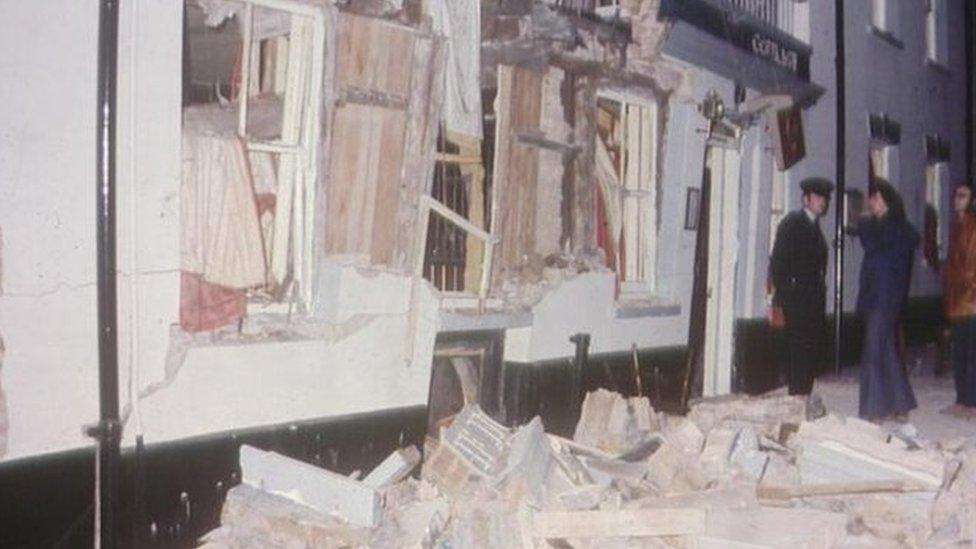Guildford pub bomb inquest: Device could have been planted by a 'courting couple'
- Published
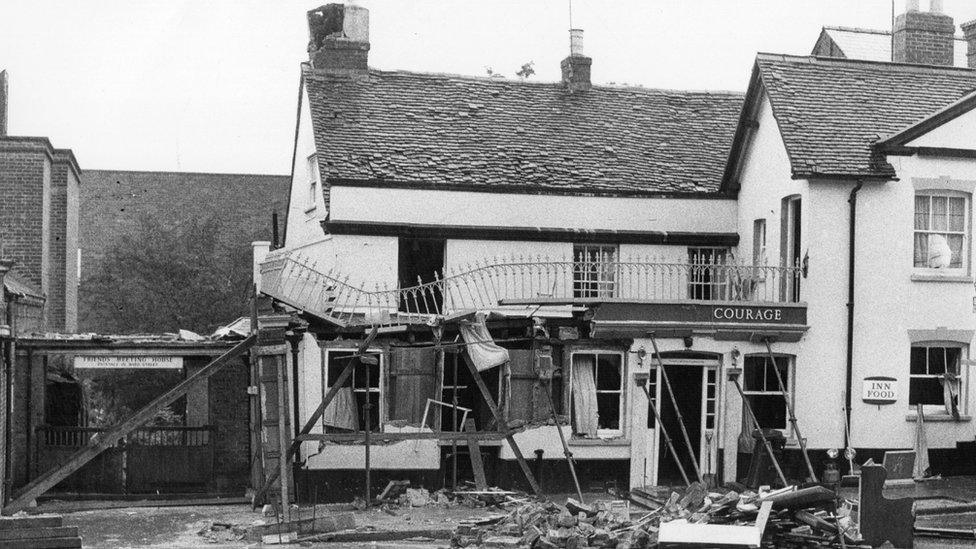
The IRA later admitted responsibility for the bombings
Five people were unlawfully killed by an IRA bomb in Guildford in 1974 which could have been planted by a "courting couple", a coroner concluded.
The IRA detonated devices at two soldiers' pubs in the Surrey town as its mainland terror campaign escalated.
Coroner Richard Travers said the main bomb was probably planted by a young couple who were never identified.
Meanwhile, a sister of one of the victims criticised the inquest, saying families had been "excluded".
Following the hearing, Surrey Police said it was considering whether it would reinvestigate the bombings.
Four soldiers and a civilian died in the blast in Guildford's Horse and Groom pub.
Another bomb detonated 30 minutes later at the Seven Stars.
The Guildford Four and Maguire Seven were wrongly-convicted for the attacks before an IRA terror cell claimed responsibility.
Those who died were 21-year-old civilian Paul Craig and soldiers Ann Hamilton, 19, Caroline Slater, 18, William Forsyth, 18, and John Hunter, 17. Sixty-five people were injured.

Caroline Slater, 18, Ann Hamilton, 19, William Forsyth, 18, John Hunter, 17, and plasterer Paul Craig, 21, died in the first explosion at the Horse and Groom
After the hearing, Cassandra Hamilton, sister of Pte Ann Hamilton, said she had wanted her lawyers in court, but her requests for legal aid and a jury were refused.
She said her family had not been able to scrutinise documents, examine witnesses, or argue for a jury and an Article 2 inquest - which would have looked at the state's duty to safeguard life.
Ms Hamilton said the coroner, Ministry of Defence, Surrey Police and the Met had publicly-funded barristers and she would be making a freedom of information request to have costs published.
"This was our last chance to engage in a process to produce truth, justice and accountability but we have been excluded," she said.
Ms Hamilton, also said questions remained "unanswered" over the bombings, and that the families had already known that the victims were "unlawfully killed by a bomb planted by the Provisional IRA".
"We know there are serious questions to be asked around all the circumstances into how our sister and the others were murdered and who was responsible," she said.
Mr Travers told Woking Coroners' Court that both pubs were widely known as army pubs and were targeted as such, and there were a number of military bases within striking distance of the town.
The court heard it had been the first night out for many soldiers who were weeks into their training.
Mr Travers said the first bomb was planted on 5 October between 17:30 and 20:50, when it exploded.
He was satisfied that it was probably planted by a young man and woman, referred to as a "courting couple".
He said: "Given that two bombs were planted in two pubs in tandem it is, of course, likely that the overall conspiracy involved more than just two individuals."
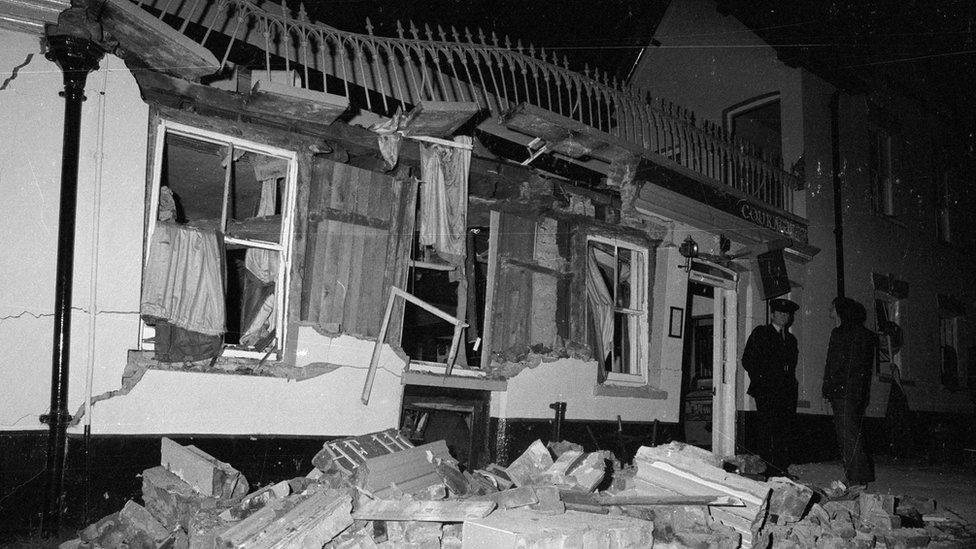
There were about 120 people in the Horse and Groom at the time
Mr Travers said all five of those who died fell into a hole in the floor made by the blast and into the pub cellar.
The coroner found it was likely Caroline Slater had been sitting directly above the bomb.
The five who died "made what proved to be fateful movements" in the moments before the explosion, Mr Travers said.
All the victims ended up near the device before there was "a loud bang and a bright flash and the lights went out" in the pub, which was packed with 120 people.
Mr Travers said the time bomb was about 10lbs (4.5kg), and "a significant quantity of high-powered explosives equivalent to about 18 sticks of dynamite".
Deputy Chief Constable of Surrey Police, Nev Kemp, said the inquest was about the young people who lost their lives and numerous other people injured in the attacks. He said he hoped the proceedings had enabled the families to have "a clearer picture of what happened".
He said he was grateful to former officers, who were on duty when the bombs exploded, for giving evidence about what was "undoubtedly an extremely traumatic experience for them to revisit".
He said: "Alongside the disclosure process, we have been assessing all the material held by the force to consider whether reinvestigation is a viable option."

Follow BBC South East on Facebook, external, on Twitter, external, and on Instagram, external. Send your story ideas to southeasttoday@bbc.co.uk.
Related topics
- Published6 July 2022
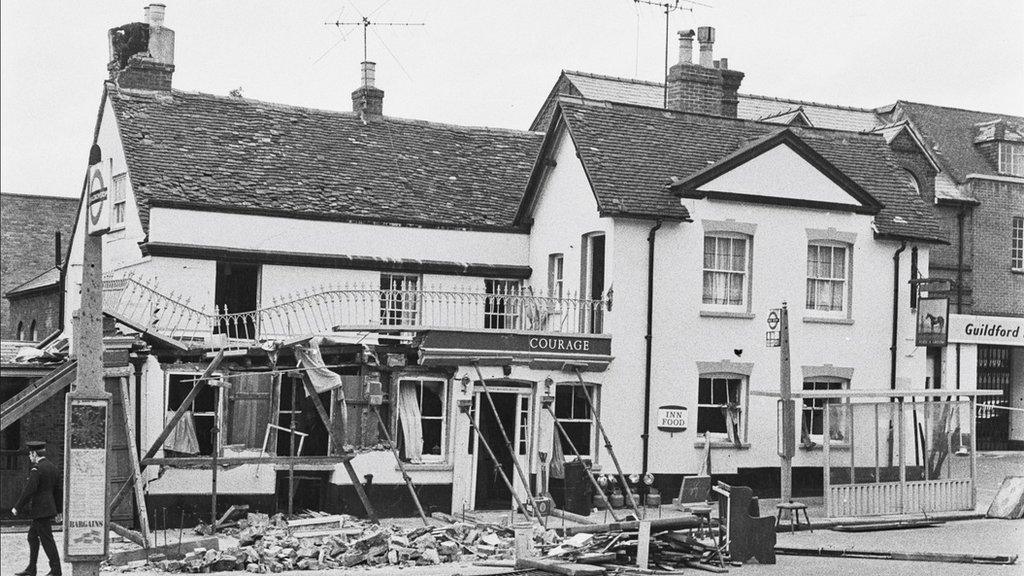
- Published5 July 2022
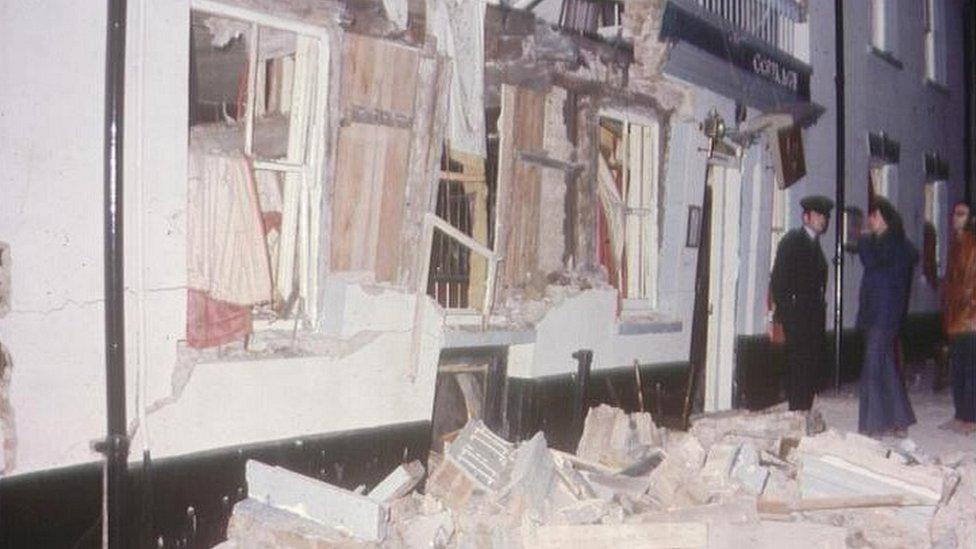
- Published1 July 2022
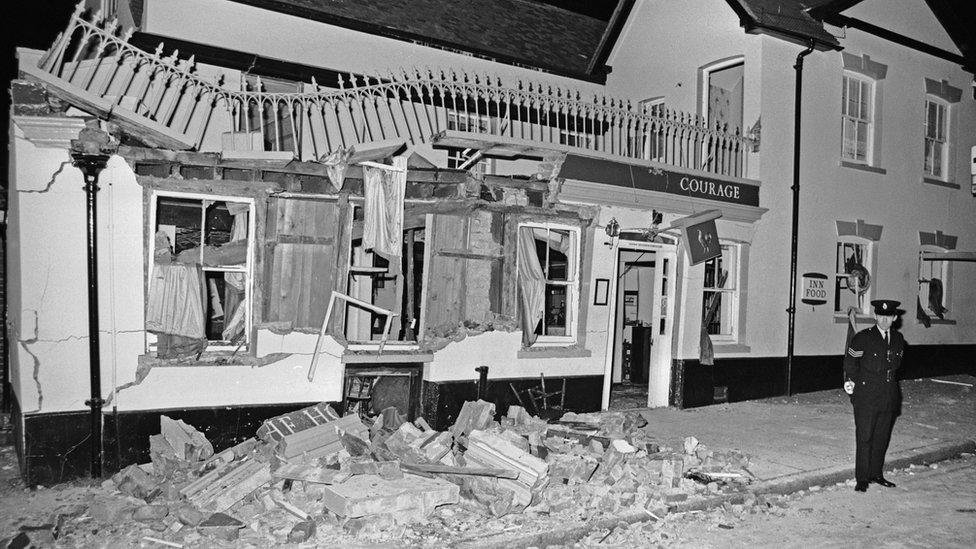
- Published29 June 2022

- Published28 June 2022

- Published21 June 2022
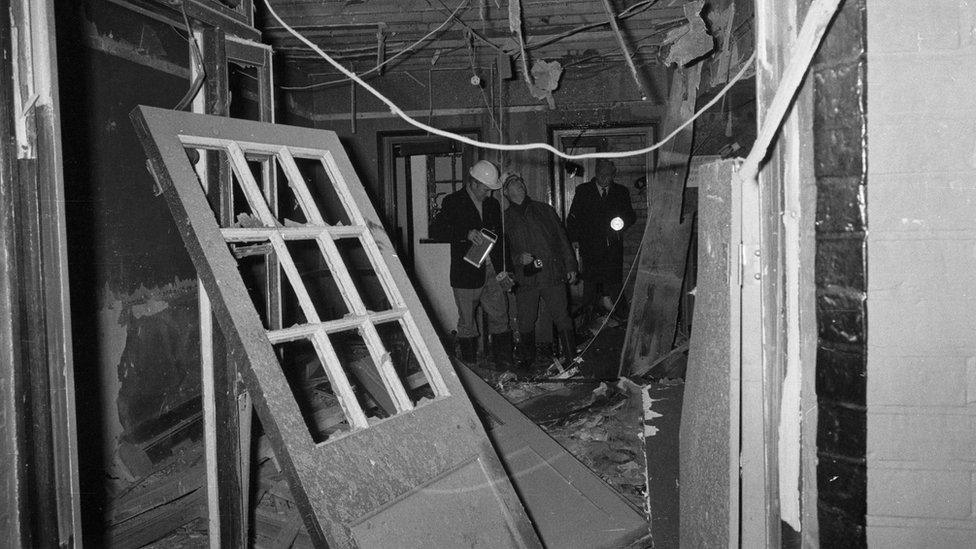
- Published20 June 2022
